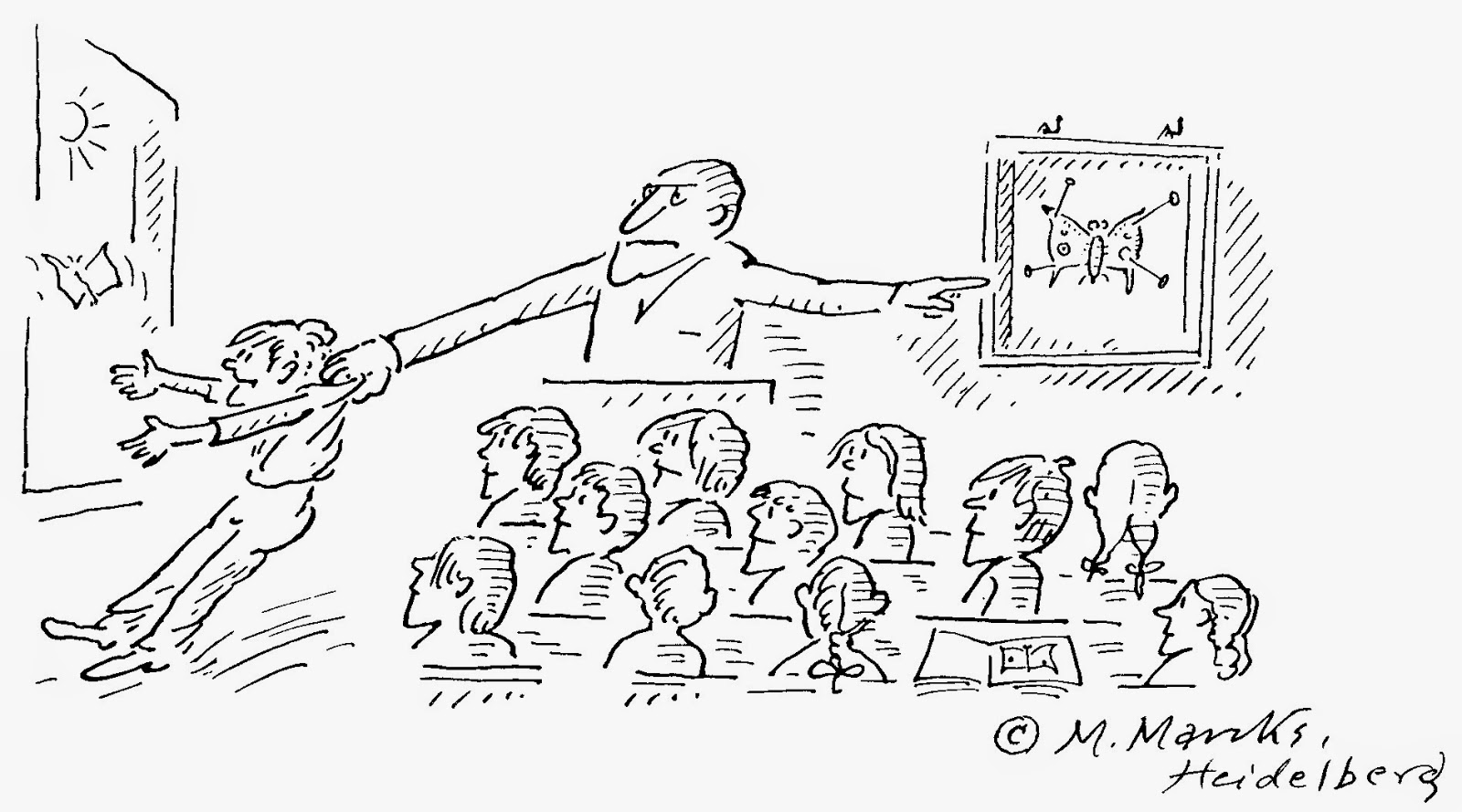Decades ago, John Dewey, America’s foremost education philosopher, asserted that students learned best through experience and that democracy “cannot go forward unless the intelligence of the mass of people is educated to understand the social realities of their own time.”I'm not a big educational "models" guy. But it's hard to argue with this one.
Escuela Nueva is an educational model designed in Colombia in the mid 1970’s by Vicky Colbert, Beryl Levinger, and Óscar Mogollón to improve the quality, relevance and effectiveness of the schools in the country. With simple, concrete strategies, Escuela Nueva promotes a classroom environment where students actively learn, participate, and collaborate; and strengthens the relationship between the school and the community. It is a flexible educational model tailored to meet the needs of each individual child, allowing students to complete units and advance to higher grade levels at their own pace.
A 1992 World Bank evaluation of Colombia’s schools concluded that poor youngsters educated this way — learning by doing, rather than being endlessly drilled for national exams — generally outperformed their better-off peers in traditional schools. A 2000 Unesco study found that, next to Cuba, Colombia did the best job in Latin America of educating children in rural areas, where most of the schools operate with this model.
This reminds me of the kind of research that was done in Ralph Tyler's renown "Eight-Year Study" (1933–1941) which compared the academic success rates of students in traditional and progressive alternative schools. In his widely read and used, post-study book, Basic Principles of Curriculum and Instruction (1949), Tyler popularized the lessons from the study and described learning as taking place through the action of the student. "It is what he does that he learns, not what the teacher does."
According to U.C. Berkeley Prof David Kirp, writing in the N.Y. Times:
Escuela Nueva turns the schoolhouse into a laboratory for democracy. Rather than being run as a mini-dictatorship, with the principal as its unquestioned leader, the school operates as a self-governing community, where teachers, parents and students have a real say in how it is run. When teachers unfamiliar with this approach are assigned to these schools, it’s often the students themselves who teach them how to apply the method. “In these schools, citizenship isn’t abstract theory, It’s daily practice.”Rachel Lotan, a professor emeritus at Stanford, is quoted the Times story:
“Doing well on the high-stakes test scores is what drives the public schools, and administrators fear that giving students more control of their own education will bring down those scores.” Officials, and those who set the policies they follow, would do well to visit Colombia, where Escuela Nueva has much to teach us about how best to educate our children.The question is, can a model of democratic education take root in a country like this one where testing, sorting and tracking students is the name of the game?


Yes, those are great progressive practices. They are alive and well in places like Mn New Country School, Avalon and High School for Recording Arts.
ReplyDeleteHere's a brief re-statement of those practices: http://blogs.edweek.org/edweek/Bridging-Differences/2015/03/six_powerful_principles_of_lea.html